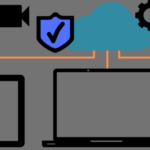eCommerce refers to the buying and selling of goods or services using the internet. It also involves the transfer of money and data to execute these transactions. The world of eCommerce design is complex and involves a very different and diverse set of skills in order to execute correctly. If you’re a small business owner who is contemplating making the leap to eCommerce, this article will go over the benefits of eCommerce for small businesses and why you should consider taking your brand online with eCommerce website design.
The Importance of eCommerce Website Design
Good eCommerce website design plays a crucial role in the success of an online business. A well-designed eCommerce website not only enhances overall user experience and improves the brand recognition of your business, but it can also increase conversion rates and ultimately drive more sales, leading to increased profits. This means that good eCommerce website design has the potential to create an alternative stream of revenue for your business beyond your physical storefront.
The Advantages of eCommerce for Small Businesses
Increased Reach & Revenue
One of the most significant benefits of eCommerce for small businesses is the potential for increased reach and revenue. With an eCommerce website, businesses aren’t limited by the geographical boundaries of their physical store. Instead, a business that functions online as well as offline can sell its products or services to customers around the world, thereby increasing their reach and potential revenue.
Lower Operational & Labour Costs
eCommerce can help small businesses reduce their operational and labour costs. Unlike physical stores, eCommerce websites don’t require physical space in order to operate, meaning there’s no need to pay to rent a store. Labour costs are also greatly reduced, as you won’t be servicing customers end-to-end as you do in a physical store, allowing you to schedule your time more effectively and efficiently.
Improved Customer Data & Inventory Tracking
eCommerce platforms often come with built-in analytics and inventory tracking features. These features can provide valuable insights into customer behaviour and preferences, helping businesses make more data-driven decisions and maximise their CRO (conversion rate optimisation). Inventory tracking can also help businesses manage their stock levels more efficiently, reducing the risk of overstocking or understocking as well as creating synergy between the online and physical storefronts.
Enhanced Online Reputation
eCommerce allows businesses to build an online reputation through customer reviews, social media and blog articles. Positive reviews can enhance a business’s reputation and build trust with potential customers as well as driving more sales. The ability to branch out into other online avenues such as social media can also increase brand awareness and improve the trust and reputation of your brand.
Conclusion
eCommerce offers numerous benefits for small businesses, from increased reach and revenue to lower operational costs and improved customer data tracking. With a well-executed eCommerce website design, small businesses can compete with larger companies, reach a global audience and ultimately drive significant growth for both their physical and online storefronts.








